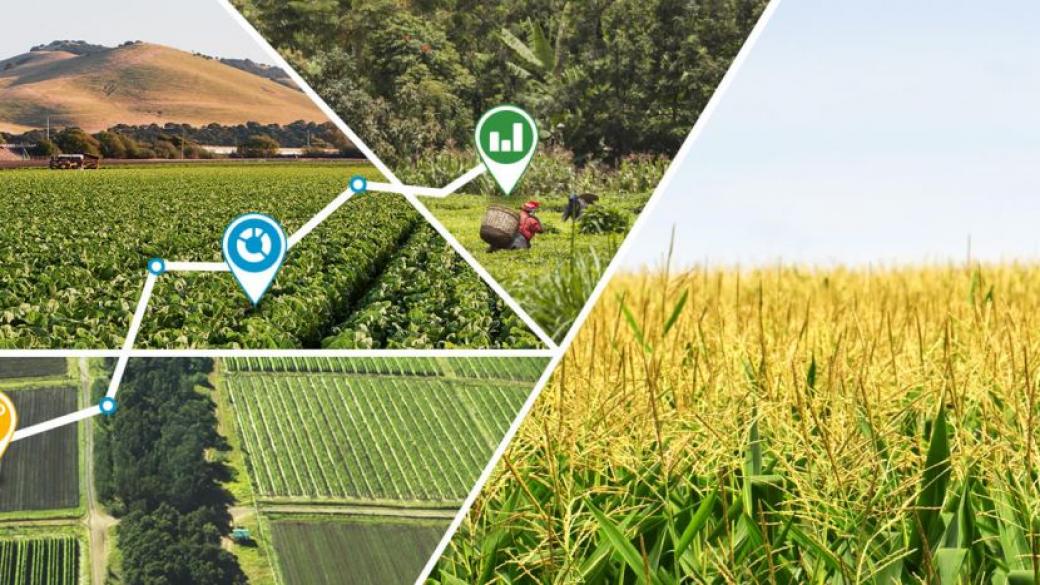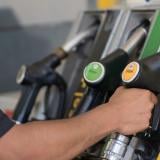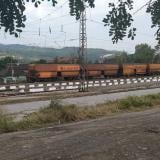E-Agriculture
Digital technology will also enter agriculture to make it more efficient and easily manageable

Digital technology starts entering Bulgarian agriculture, but it is difficult to say how fast it will step into the new era. Digitalisation has just begun, but in Bulgaria we have an extremely well developed ICT business, which will be important in this process.
Gap
Digital transformation in agriculture
is no longer a matter of choice, but a necessity for more efficient and sustainable
agriculture. We have to work together and support the deployment of these
technologies. This was pointed
out by the Bulgarian Commissioner for Digital Economy and Society Mariya
Gabriel at the forum "Together for Strong Digital Agriculture", organised
by the Institute for Agrostrategies and Innovations in April. In her words, through the Digital Single Market
strategy, the European Commission has the ambition to contribute to the closing
of the digital gap between rural and urban areas. Around EUR 6 billion are
available for the whole EU to deploy the broadband Internet and overcome this
disproportion. Our WIFI4EU Free Internet Initiative is a good opportunity for
less developed regions, and the EU Commissioner hopes that more municipalities
will take part.
Activity
It is unacceptable to comment on Industry 4.0 as being
a priority, to talk about its connection to education and the administration,
and not to have the same conversation about agriculture, the Deputy Prime
Minister Tomislav Donchev believes. Topics such as robotics, artificial
intelligence, data, the Internet, the growing use of broadband digital
communications, sensor-driven machines, and microprocessors will be part of the
agricultural sector more and more. According to him, we need to talk about
planning and digital marketing in terms of agricultural production. We must
build the future, not wait for it to catch up with us, Donchev says.
Why
Farmers need to introduce innovations at a higher pace
in order for humanity to cope with the new food-related challenges more
quickly. Innovative farming systems are expected to enter with a high speed,
and digital technology is very promising in its efforts to optimise production,
said Nevena Aleksandrova, an FAO expert at the UN. "The focus that the event put at a high level was on the need for political
commitment, but also for a public dialogue in order to reach a consensus in
each country for the development of a strategy for the digital future of
agriculture.
Keeping Pace with the Change
The digitalisation of the agrosector has no
alternative. This is the world trend, and if we want to keep pace, we also have
to think in this direction. If there is such a need, the ICT sector will be
immediately involved. When agriculture begins to digitalise itself extensively,
more attention will be paid to the overall infrastructure that will be needed
for the work of all automated systems that need connectivity. This is what
Albena Mircheva, owner of the software company CodeNest, told Economy Magazine
In the past three years, she has been engaged in fodder production, while
working for the large German holding AGRAVIS Raiffeisen. She is already convinced in the great potential for the agricultural modernisation
in Bulgaria.
New Generation
In agriculture and farming, there is a serious succession
when passing on skills in a particular field of activity to the next
generation. The young generation of farmers who take up their parents' businesses has a digital mindset and
are already in dire need of finding solutions that facilitate their work. They
are looking for ways to make their farms promising, ready for the entering of
more technology, but they need support.
Solution to the Problems
"Technologies are introduced to solve a certain
problem, not just for the sake of technologies themselves. At the moment, some
Bulgarian grain producers can remotely monitor their crops by receiving a
satellite photo from the field. A lot of the agricultural equipment is already
connected to real-time machine tracking systems, which can monitor its location
and use," says Ivo Kumanov, manager of NIK. According to Kumanov,
technology becomes an indispensable assistant. The TechnoFarm software system
offered by NIK supports the activities of farmers by facilitating them in
concluding lease agreements, outlining the areas they cultivate, submitting
subsidy documents under various measures and direct payments. The Manager of
Bioselena Foundation Dr. Stoilko Apostolov reminds, however, that the vineyard is
not made with blessing, that is, automation can significantly make the farm
work lighter, but it will not abolish it. Undoubtedly, technology will be a
crucial factor for competitiveness.
Benefits
If there is demand, the infrastructure will develop,
the business sector will produce goods and will train farmers how to use them.
When the benefits of the introduction of new technologies start being noticed,
farmers will start to use them in their farms. The good news is that the
conversation about digital farming has already begun and successful examples
will matter. There is already a way for a farmer to automatically receive data
when plant pollination begins, when it should be watered, what the period is
appropriate for and what is recommended to be done. For animals, different
sensors and detectors will also be used to monitor what happens with them and to
give recommendations to the farmer for the necessary actions. There are already
products that are available, and their number is about to grow.
Prospects
Everything is possible with digitalisation, the only limit is the human factor, Albena Mircheva says. The forum in Sofia outlined the new direction of development. Until this moment, no one talked about it, and there was no reason for the software business to make serious efforts in this direction. The Institute for Agrostrategies and Innovation, which is already inside the topic and the problems, could be a link between the agrosector, the ICT business and the government. Its experts will be useful with their know-how and advice. However, digital transformation in agriculture needs action from all participants in the process, including the government and the municipalities.
















